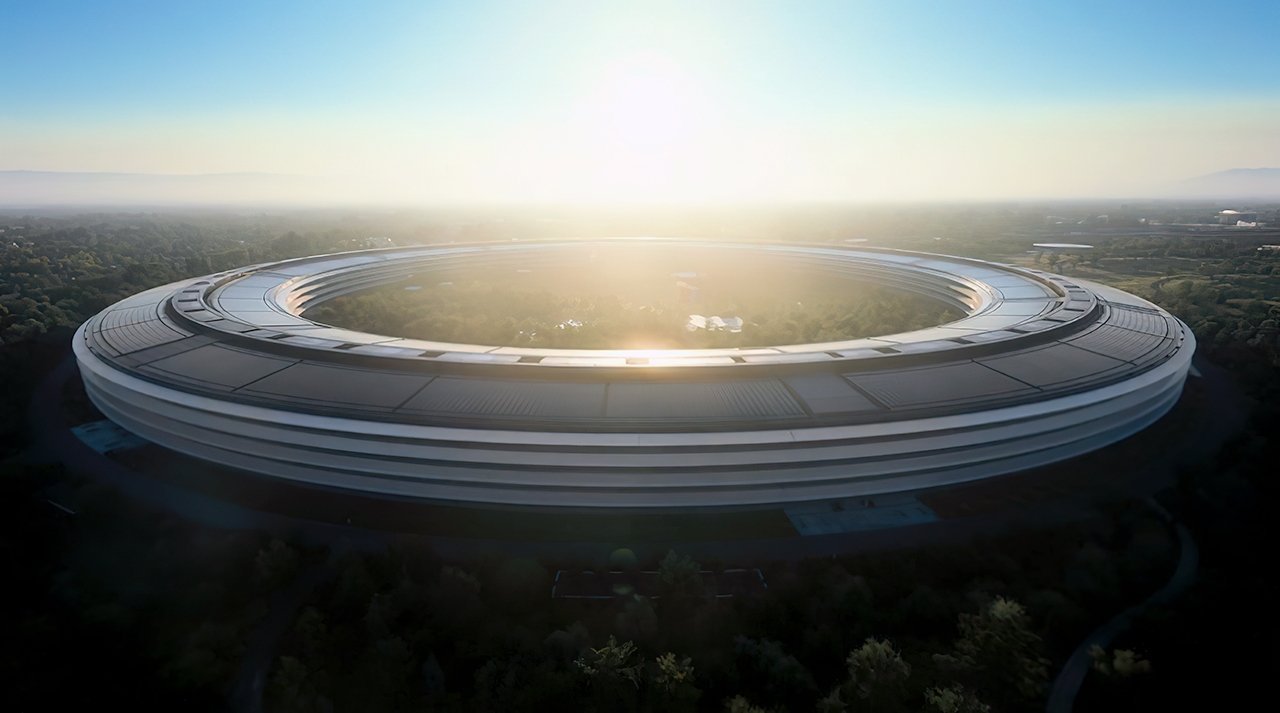Cupertino returns $12.1 million to Apple after long-running sales tax dispute
Cupertino has paid Apple $12.1 million, settling a sales tax dispute that reshapes how tech giants and cities do business in California.

Apple Park
Since 1998, Apple has treated all of its online sales within California as if they originated in Cupertino. That arrangement allowed the city to collect 1% of Apple's 7.25% sales tax, according to Silicon Valley.
In its latest move to resolve the long-running dispute, City Council approved the payment during a Tuesday meeting with no discussion. The refund covers sales tax revenue Apple generated between January 2023 and June 2024.
According to city documents, the transaction was finalized on March 6, 2025, and the money came from Cupertino's general fund, which supports most of the city's services.
The settlement followed an audit by the California Department of Tax and Fee Administration (CDTFA), which found that the state -- not Cupertino -- was entitled to the revenue from Apple's online sales.
How Apple's tax setup worked for decades
The long-standing agreement between Apple and Cupertino shaped where sales tax dollars went and sparked growing controversy over time.
As part of the deal, Apple received about a third of the revenue back. The returned revenue is a common incentive used by cities to attract or retain major employers.
The arrangement benefited both parties for over two decades. Cupertino received tens of millions of dollars annually, which helped fund infrastructure, services, and public projects.
But as Apple's online sales grew, so did scrutiny from other cities that argued they deserved a share of that tax revenue.
CDTFA changes the rules and Cupertino adjusts
That scrutiny led to the CDTFA's 2023 audit. The agency concluded that tax revenue from Apple's online transactions should be distributed across the state based on where purchases were actually made or delivered -- not where the company is headquartered.
Cupertino was initially expected to return $56.5 million, prompting budget reductions affecting city staff, community programs, and capital projects.

CDTFA changes the rules
A settlement reached in October 2024 allowed the city to retain $74.5 million in previously collected revenue, reducing the immediate fiscal impact. However, the agreement also required Cupertino to refund Apple $12.1 million from its own general fund.
Why this matters for cities and tech firms
The Cupertino-Apple case may set a precedent for other municipalities in California that have similar revenue-sharing arrangements with large companies. It's a reminder that digital-era tax deals are subject to state oversight and legal challenge, especially when they appear to concentrate public revenue disproportionately.
While local governments often offer incentives to keep major employers within city limits, the state is increasing scrutiny over how those arrangements affect broader tax fairness and distribution.
For Apple, the refund is minor in the context of its overall finances. But the CDTFA's decision may prompt the company and others to reconsider how they report online sales within California.
For Cupertino, the settlement brings a measure of closure, though the long-term budget implications remain unclear. The case has also sparked wider discussions about how local economies should structure tax policy in an increasingly digital retail environment.
Read on AppleInsider

Comments
https://appleinsider.com/articles/24/10/04/cupertino-wins-and-loses-millions-over-californias-apple-tax-ruling?utm_medium=social&utm_source=ai_forums
explains that in a little more detail.
Basically the City of Cupertino gets to keep the tax revenue from 2023 (when the investigation started) until now (2025). A new system will be put into place by the State of California where digital sales tax revenue is collected will go into a new system designed to spread the revenue statewide based on where the digital buyer placed the transaction.
This is just a short term reprieve for the City of Cupertino. They need to figure out fairly quickly how to set their budget accordingly due to a change in expected sales tax revenue from 2025 onward. Apart from Apple, Cupertino is basically a bedroom community with very little retail. It doesn't even have a proper legacy downtown district and its one shopping mall, Vallco failed and is mostly dead.
Read the other article carefully. But the basic gist is that the state has not yet set up the process to disperse that tax revenue yet. As the other article mentions, the ruling affects other California companies with digital retail sales. I'm guessing that companies like Meta (Menlo Park), Alphabet (Mountain View), Netflix (Los Gatos) will be affected as well as maybe others such as Sony Interactive Entertainment (a.k.a. PlayStation) which is headquartered in Redwood City.
Note that for physical goods, there is a long standing system in place that collects sales tax calculated at the point of sale (defined as where the buyer takes possession of the purchased goods). California has a base sales tax however many counties and some municipalities have add-on taxes that increase that amount. So someone buying Gadget A in San Francisco will pay a different sales tax rate than someone in Mendocino County.
This ruling is for digital sales so there is no localized sales tax collection system yet in place. This probably means additional work for Apple (and other digital merchants) who will need to use things like FIPS county codes, ZIP codes, etc. to determine exact sales taxes to be collected just as they do for physical goods (like buying AirPods from store.apple.com).
Until now Apple just collected sales tax based on their location in Cupertino, CA (Santa Clara County) and remitted what was required to the state and county. They did not collect anything more or less. The CDTFA's decision is not retroactive.
Anyhow, Cupertino gets to keep some of their tax revenue and now has to tighten their belts and find other sources of revenue. LOL, maybe a bond measure.
>There are three scenarios when tax is based on the seller’s address:
In-store purchases
Curbside pickup orders — aka, click-and-collect or buy online pickup in store (BOPIS)
In-state delivery orders in origin sourcing states
Origin sourcing rules apply only in certain states, and only to in-state delivery transactions (when the buyer and seller are both located in the state). Several states use origin sourcing for in-state internet, mail, or phone sales. For example: ..... <
>Generally, if you are located in an origin-based state and make sales to customers within that state, you would charge sales tax based on your location, including any local and state taxes. For example, if you are based in Salt Lake City, Utah, and you make a sale to a customer in Provo, Utah, you will charge the applicable Salt Lake City sales tax on the sale.
In the case of California, if you are based in that state and make a sale to another location in California, any city, county or state taxes will be based on the seller’s location (origin), while any district sales taxes will be based on the customer’s location (destination).<